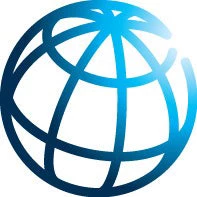Last week, about 50 people attended a meeting at the World Bank on ways that climate data and open source tools might be harnessed to address the challenges of climate change and development. The occasion for the meeting was the Apps For Climate competition, currently underway with a submission deadline of March 16th. But with both climate specialists and developers in the room, participants were just as interested in discussing the current state of knowledge, and exploring ways to bridge some of the current gaps.
Here are some highlights from the day’s discussion:
Context—and attribution—is important
The presentations from climate data experts stressed the importance of understanding the data that you’re trying to use. And developers stressed the importance of data sources providing information about the data they publish. Data that is "hard to use" is a barrier. Developers tend to use data they can easily access and understand—which may not the most current, comprehensive or robust data available. Correct attribution is also an important issue, since data providers go to great lengths to curate data sets to ensure quality (in most cases, the World Bank is not the original source of the climate data sets it makes available).
Improved data collection and methods
One of the World Bank’s chief interests in publishing climate data is to engage researchers, developers, academics, practitioners and others in an effort to improve the available data, and make it more useful. Many people affected by climate change may be in a position to contribute to this effort. How can we tap into that knowledge and ability to observe and measure first-hand? Are there other observational methods—or proxies—that might be employed? What role can "crowd sourcing" play?
What we know that we know, and what we know that we don’t
The data that we don’t have may be just as important as the data we don’t have—yet. What data do climate researchers wish they had—or had more of? What data sets are too coarse, or too out of date? What data sets could be relevant that haven’t been considered yet? One big potential outcome of the Apps For Climate competition would be to identify “data gaps” and possible solutions for filling them.
Make data meaningful to people
To engage people better on climate data and increase issue awareness, we need to make the data relevant to issues they already care about. One group suggested using climate data to engage “highly motivated groups,” such as birdwatchers (or gardeners, sportsmen, snow skiers, etc), whose interests would be affected by climate change. Could some of these communities contribute to efforts to achieve better data and understanding? And could apps enable such collaboration?
Remember: the Expert Help Desk live chat will be Tuesday, February 14th from 9am-12pm. World Bank climate and data experts will be online to answer questions about specific data sets, the competition, and using the API. We’ll be set up to field questions in English, Spanish, French, Portuguese, and Arabic. Answers will be given in real time, and the complete transcript will be available immediately after the event. You can also post questions in advance.


Join the Conversation